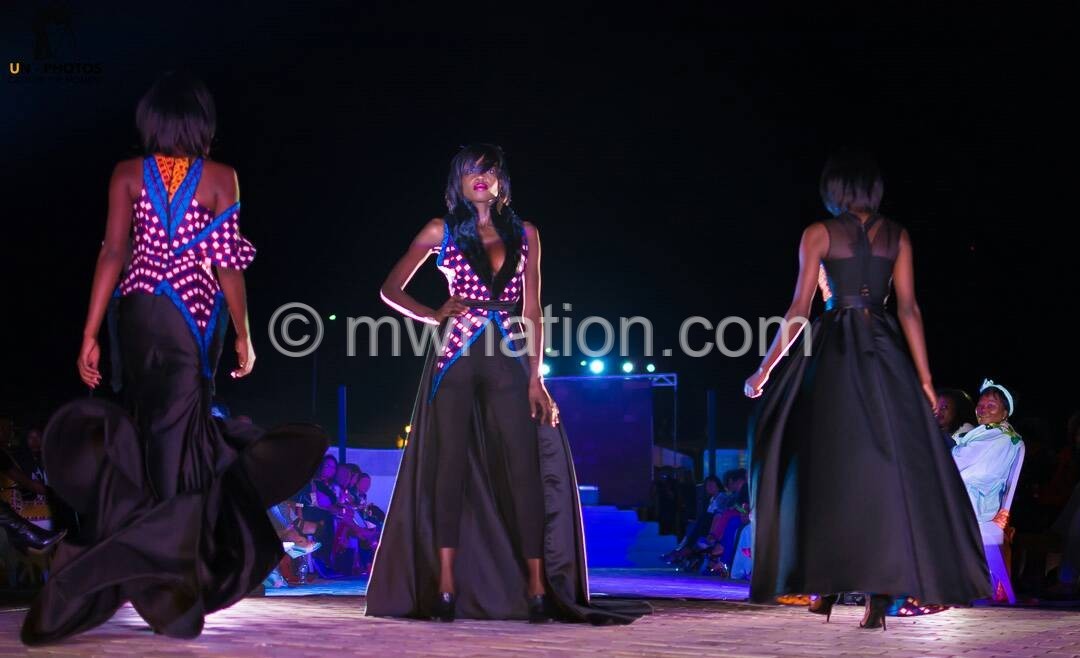Lilly Alfonso: Founder of Lilly Alfonso fashion and design company
A wide range of products made in Africa are making an impression with buyers from different corners of the world like never before.
Africa’s entrepreneurs, including women are proving to be confident brand builders competently connecting with consumers in global markets.
Local fashion designer, Lilly Alfonso was recently among the inspiring African women brand builders successfully making their mark around the world at the Lionesses of Africa (LOA) annual conference held in Johannesburg.
Named after her, Lilly Alfonso is a fashion and design company that was founded in 2005. With three subsidiary labels namely LA Mann, LA Womann and the newly introduced LA Sport, Lilly Alfonso is a registered trademark specialising in designing and manufacturing both men’s and women’s outfits.
As a panelist and generally as one of the 300 African women entrepreneurs who patronised the conference, the young fashion designer had a lot of lessons to learn from other participants at the LOA annual conference.
“Many businesses have stemmed out of challenges people faced and in the end had to use whatever they had to get to where they are. They refused to dwell on their problems; instead they decided to offer solutions. They became part of the solution. From that, I learnt that sometimes when problems come knocking, we should embrace them and try to find a way out. Unfortunately, most of us run away from the challenges,” she notes.
Alfonso outlines the example of Ghanaian entrepreneur Kate Quartey-Papafio, founder of Reroy Cables Limited which distributes high quality electrical cables.
Quartey-Papafio was one of the panelists, a major player in the production and supply of power cables, conductors and provides electrical power distribution systems and strategic contract services to the electricity sector.
Her business, according to Alfonso, is linked to the electricity distribution and transmission stemmed from the constant blackouts in Ghana which compelled her to find a solution.
Alfonso was born in a family of seven children; four girls and three boys and was raised in Kanjedza, Blantyre. As a family, she and her siblings worked together as a team.
“We always sat together to share food or say a prayer. We were taught to take responsibility for our actions. I grew up in a family where the oldest child would be shouted at or punished when the younger ones misbehaved.
“Our parents believed that younger ones learnt from the older ones. Growing up, my father had more interest in me and what I did. He would let me do what I loved doing as a young child,” explains Alfonso, adding that it helped nurture her talent in fashion design.
However, she never imagined becoming a designer despite her keen interest in fashion at an early age. Alfonso admired designers and designs on television and she told herself she, too, could do it.
It was not until she emerged as the best designer in fashion designers competition in 2010 that Alfonso was finally convinced she could make bigger strides.
Today, she is one of the leading local fashion designers with her products all over the world; even showcasing in international fashion shows.
“Our products are locally designed and manufactured. What we make is of international standards, yet, African. We make versatile collections, meaning that most of our outfits can be worn at different occasions.
“Lilly Alfonso is all about upscale and class. When someone wants his/her outfits customized, we make sure the final product is personalised to suit their taste. Lilly Alfonso is for the daily modern man and woman,” she says.
Designers have to understand signature and Alfonso says that is what makes one’s designs different and unique.
“From coming up with a new collection for every season to keeping up with new trends in fashion, it is the designer’s responsibility to ensure that people like what they wear. As designers, we must be able to advise on which colours, patterns or styles are suitable for specific body types and skin complexions.
“The end result is what matters most. Being able to change someone’s mood when they wear my designs is my goal. Clothes are personal and they make a difference in people’s lives. One’s confidence gets boosted when they feel and look good in what they wear. To be part of that change is what makes me happy,” she says.
As with any other business, Lilly Alfonso Fashion and Design Company challenges. She says their operations are being affected by power outages.
Narrowing it down to the fashion industry, Alfonso says sourcing materials is a major challenge.
“We are forced to work with what is provided. This is against fashion because mostly, a design determines the materials used not the other way round. Apart from that, we have the pressing issue of copyright where copying designs has become a common practice,” she explains.
Advising the little girl out there who dreams of making it big in fashion design some day, Alfonso says: “don’t be like me! But look up to me and get inspired. Look within yourself and discover the best of what you can be. Realise your strength or talent. Your strength could be in so many things not only fashion. And when you realise your strength, work hard and be determined to reach your goals.”
She points out that for her, building an international brand should not be about oneself, but for the benefit of others as well. Alfonso points to how she has turned people to modeling, exposing them to the global modeling markets.
“People do not look at fashion modelling as a career, but look at how people out there have made it big in this career?” she observes.
The designer has helped some people in the country; from those who come to her for fashion design mentorship, to those she has employed to produce and model the brands. She gets fulfillment to see them grow.
“Many people now believe in fashion. Three of the people I have trained are this year going to showcase their own clothing lines in Australia. Not as Lilly Alfonso brands, but their own brands. I am always happy to see young talent being groomed for international markets,” she says.
Other, too, have approached her to sharpen their fashion designing skills. She recalls that in her times as a start-up fashion designer, she could have used a hand to pull her up, but there was none.
That is what compelled her to be there for the upcoming fashion designers and help them realise their dreams.
Faida Banda, 23, is one of the upcoming fashion designers from Area 18 in Lilongwe under her mentorship.
“I used to sketch, but not the way I do now. Anyone can really see a change from my previous designs,” she says.





